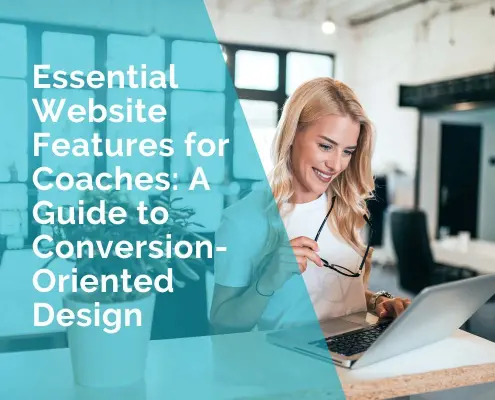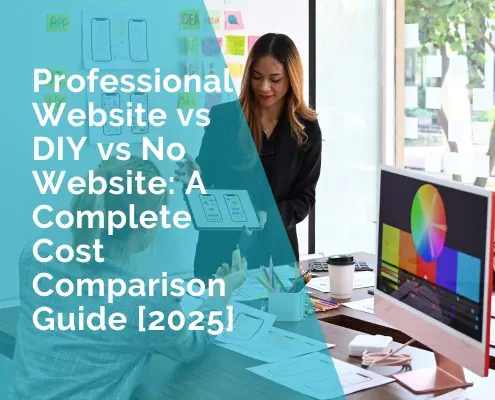Unlocking the Power of SEO for Business Growth
Search engine optimization is one of the most powerful tools you can use to grow your business online. It improves online visibility, and it’s a great way to improve brand visibility and awareness. SEO can increase your website traffic, boost your conversion rates and help you reach your business goals.
SEO is also a more cost-effective strategy than pay-per-click advertising. The efforts you make today will still be paying dividends in years to come, unlike with PPC.
Here’s how you can utilize SEO for business growth.
Align Your SEO Strategy with Your Business Goals
Your first order of business is to consider your business goals. What is it you are trying to achieve? Do you want to launch a new course, enter a new market, or expand your target audience? Would you like to convert more website visitors or see more newsletter signups?
Once you are clear on this point, it will be easier to come up with the right SEO strategy. Different SEO tactics can achieve different online marketing goals. Some will drive more traffic, while others will boost rankings for brand-related searches, for example. It’s important that they align well, otherwise you may hit your marketing milestone, but fail to convert them into tangible growth results.
For example, you may end up seeing a vast increase in traffic but fail to convert it. Or you may see a certain page climb to the top in search results but it ends up attracting only unqualified, low-value visitors.
Audit Your Website Thoroughly
Your next step is to conduct a thorough and detailed website audit. If you don’t yet have a website, you won’t need to do this step.
An audit is meant to discover your strengths and weaknesses. Ideally, it will analyze every single aspect of your site, including its speed, technical and on-page optimization, user-friendliness, backlink portfolio, and content quality.
This might be a particularly complex and daunting task, especially if you’re not very familiar with SEO, so it’s best left to professionals. You can work with a highly-rated B2B SEO agency, which will understand how your services can best be promoted and what your target audience is looking for.
Depending on what the audit uncovers, you may need to make small or significant changes to your website. This can be a time-consuming effort, but it’s best to ensure your website is in the best possible shape before you deploy your SEO strategy.
Analyze Your Competitors and Their Strategies
Before you finally get to the point where you can create your personal SEO strategy, you need to take some time to check what your competitors are doing. These are the brands and individuals who are offering the same types of services, courses, or digital products as you. You will be competing with them for the top spots in search results and for your shared audience’s attention.
An SEO agency or a consultant can come in handy here too. They will analyze roughly the same aspects of competing websites as they have during your website audit. They will check the keywords they are ranking for, the kind of content they publish and the types of backlinks they have. They will also check how well their websites are optimized and how good their UX is.
This step is meant to uncover any shortcuts to victory and determine the best course of action you need to take. For example, if you discover your top competitors have slow, clunky websites, making yours faster and easier to use can make search engines favour you.
Competitor analysis can also help you determine the kinds of topics you should cover on your blog and identify any questions or concerns your target audience has that have not yet been addressed properly.
Decide on the SEO Tactics You Want to Deploy
Search engine optimization is a collection of numerous tactics and strategies, as opposed to one specific set of predefined steps. Here are the most common and most valuable ones you should definitely consider utilizing:
Keyword Research
Quality SEO begins with keyword research. It will help you identify the pages you want to create and the terms you will need to use on them to increase your chances of ranking.
The key to keyword research is to select one tool and stick to it. If you use several of them, you’ll soon get confused by the sometimes vastly different keyword difficulties and search volumes they show.
Note that no tool is completely accurate, so the best you can ever get is an estimate.
Find a reasonable balance between low-hanging fruit keywords you can easily rank for and top-level keywords centred around topics your audience is expecting you to cover.
On-Page Optimization
Once you have identified the keywords you want to target, you’ll need to optimize your page for them. Ideally, you will again use a tool for this purpose, that will help you determine how many instances of a keyword you need. Surfer SEO and Frase are good options to try.
On-page optimization also involves optimizing the meta elements of a page. This includes the title and headings, as well as the meta description. It’s important to remember that while all of these elements are meant to sway search engines, humans will see them, too. Try to make them as helpful and conversion-oriented as possible while still adhering to the basics of on-page SEO.
Technical SEO
Technical SEO is the more finicky part of optimization, and it impacts how your website is crawled and indexed. It is more complex than on-page optimization, so you are highly advised to consult an expert to handle this part for you.
Technical SEO involves the optimization of sitemaps, the robots.txt tile, website architecture, page speed, redirects, broken pages and so on. It can significantly boost your rankings, especially if your competitors have failed to utilize it properly.
Content Creation
Quality content is at the centre of search engine optimization. It’s the very essence of the web and your most valuable asset.
Creating informative, helpful, easy-to-read content should be your top SEO priority. Yes, you will also need to optimize it well and you should only write about topics your target audience is interested in. However, writing poor content on high-value topics will not deliver the results you want.
Always start by considering the topics from your audience’s point of view. What are the issues at stake? What problem are they trying to solve? How can you teach them to solve it? What can you offer, and why is it beneficial?
Find a unique voice and write for humans first. Optimize your pages well, but don’t try to cheat the algorithm. It never works in the long run.
Backlink Building
Finally, you can also choose to build backlinks for your website. This will involve reaching out to other websites and asking to be featured, whether in an exciting post or writing a new article for their blog.
If you choose to build backlinks, make sure to only work with reputable websites run by real people. Consider link-building more of a relationship- and audience-building effort that will help you reach new people and spread the word about your services or products.
Note that link-building takes a lot of time and effort. Most of your outreach emails will go unopened, so be prepared for a bit of a hustle.
Understand How to Measure Success
Measuring and analyzing results is a vital part of every successful SEO strategy. It’s not enough to merely run a campaign and hope it does well. You need to understand the exact difference it has made and how you can replicate or improve them.
Depending on the tactic you have chosen, you will need to monitor different KPIs and metrics. In the broadest terms, these are the ones to keep an eye out for:
- Organic traffic – you want to see a steady increase over time, as opposed to a sudden jump. Fluctuations are to be expected and no cause for concern.
- Keyword rankings – the pages you are targeting should start to climb in search engine results.
- Number and quality of backlinks – even if you are not running a dedicated link building campaign, your pages should organically start to attract backlinks from real, reputable websites.
- Conversion rates – should increase, especially on pages that have started to rank better.
- Bounce rate – should ideally start to decrease over time.
- Time on page – should increase over time, especially on the pages in which you have invested a lot of effort.
Run regular website audits to ensure that your on-page and technical tactics are still working as intended. This step can also serve as a great time to analyze the changes in the above metrics and determine which tactics are working and which aren’t.
Never Stop Adapting
Finally, don’t forget that search engines continually update and change their algorithms, so the tactics that have worked well today may need a bit of tweaking in six months.
As long as you don’t reach for any shady or outright black hat methods, you shouldn’t be overly negatively affected by these changes. However, some volatility is to be expected, so you will need to continuously work on improving your content and optimization efforts.
Wrapping Up
While search engine optimization is a powerful tool for business growth, it is by no means a surefire way to success. How well your strategies perform will depend on a whole host of factors. Essentially, as long as you aim to truly be of service to your target audience and don’t try to hoodwink the algorithm, SEO can skyrocket your sales and conversion rates.











